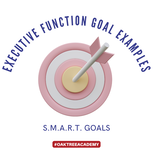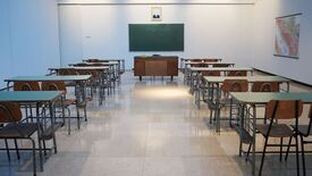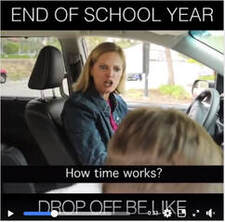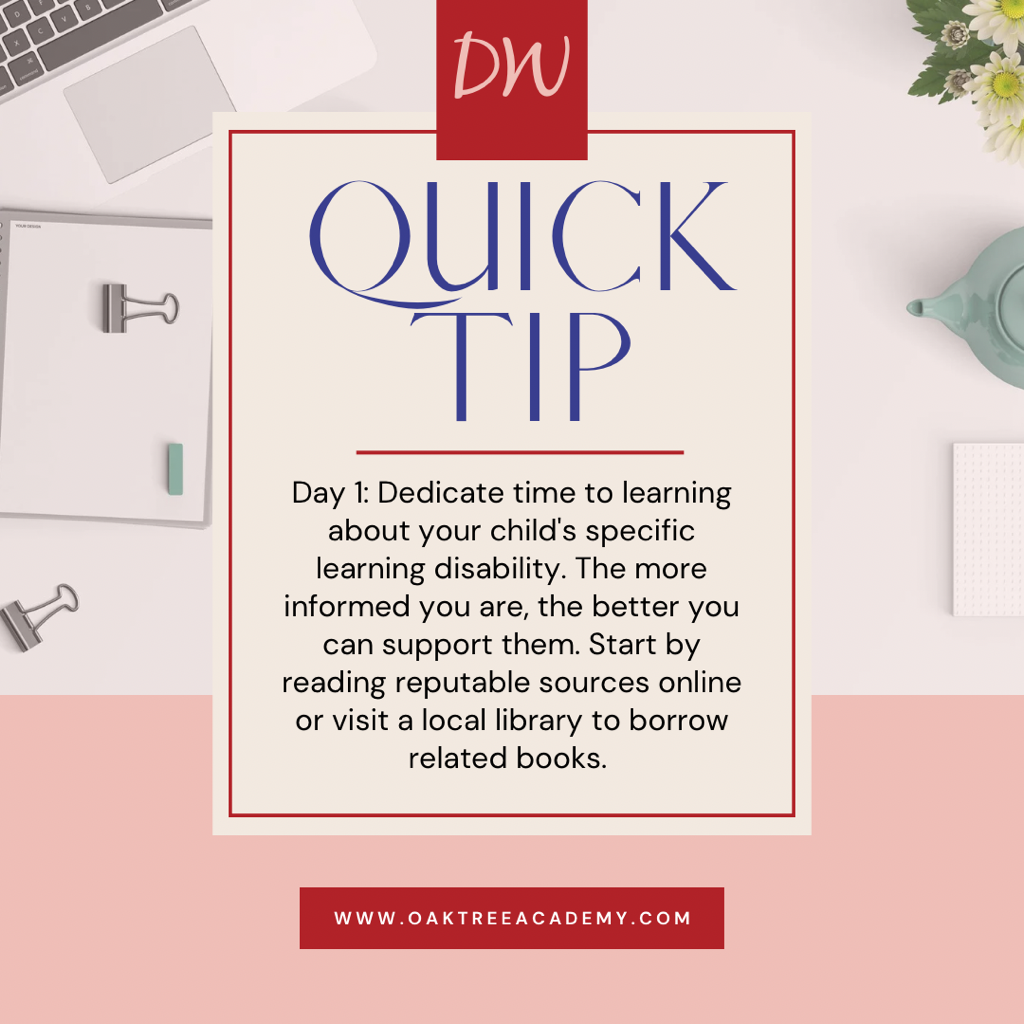 As you sit across from the educators and specialists, the conversation sways to the academic future of your child with special needs. The terms and acronyms fly thick and fast, and despite your diligence, the dialogue can seem enigmatic, creating a mix of hope and anxiety within you. It’s clear an Individualized Education Plan (IEP) is pivotal for success. Yet, comprehending the inner workings and legislation that frame such a plan is no small feat. Crafting an effective IEP requires meticulous care, a deep understanding of your child’s needs, and a robust collaboration with education professionals. Rest assured, you are not traversing this path alone. This guide serves as a beacon, illuminating the process to ensure that your child's IEP is not just a document but a dynamic blueprint for educational and developmental growth.
0 Comments
 Discover five essential goals aimed at enhancing a student's academic journey and personal development. These objectives focus on improving task initiation, working memory, self-monitoring skills, organizational abilities, and emotional regulation. Explore the detailed plan to support the student's progress and ensure a brighter future. ### Goal 1: Enhance Focus and Attention - **Objective 1.1:** Within the next 3 months, the student will successfully maintain attention on assigned tasks for a span of 20 minutes, measured through teacher observations and feedback during classroom activities. - **Objective 1.2:** Over the next 6 months, the student will independently utilize self-monitoring strategies, such as checklists or visual cues, to remain focused during individual work time in 4 out of 5 opportunities. ### Goal 2: Improve Organizational Skills - **Objective 2.1:** In the coming 3 months, the student will consistently use an organizational tool, such as a planner or an app, to track assignments and due dates, with accuracy assessed through regular checks of the tool. - **Objective 2.2:** Over the next 6 months, the student will maintain a neat personal workspace and keep track of belongings, with successful demonstration of this skill in 8 out of 10 observed instances. ### Goal 3: Enhance Social Interactions - **Objective 3.1:** Within 3 months, the student will engage in appropriate turn-taking behaviors in group activities, successfully demonstrating this skill in 4 out of 5 opportunities as noted by the teacher. - **Objective 3.2:** Over 6 months, the student will use appropriate strategies to join ongoing group activities or conversations successfully in 8 out of 10 attempts, monitored through teacher observations and feedback. ### Goal 4: Develop Emotional Regulation Skills - **Objective 4.1:** In the next 6 months, the student will identify and use two self-calming techniques when experiencing frustration, demonstrating the ability to use these techniques independently in 90% of opportunities. - **Objective 4.2:** Over the next 6 months, the student will express feelings and emotions appropriately, avoiding negative behaviors in 9 out of 10 instances, as observed by the teacher or counselor. ### Goal 5: Improve Handwriting and Fine Motor Skills - **Objective 5.1:** Over the next 3 months, the student will improve handwriting legibility through consistent use of strategies such as proper grip and slow and controlled writing in 4 out of 5 written assignments. - **Objective 5.2:** Within 6 months, the student will complete fine motor tasks (such as cutting, drawing, and writing) with increased accuracy and control in 8 out of 10 observed opportunities. Here are some helpful resources that can offer more in-depth information on various learning disabilities:
Books:
 Special education is a set of services that are provided to students with disabilities in order to help them learn and succeed in school. These services can include specialized instruction, accommodations, and modifications. Special education is provided at no cost to parents and is based on the individual needs of the student. There are many different types of disabilities that can qualify a student for special education services. Some of the most common disabilities include:
Here are some of the benefits of special education:
Special education can be a great resource for students with disabilities. If you think your child may need special education services, I encourage you to contact your school district and learn more about what is available. Special education is a vital resource for students with disabilities. By providing specialized instruction and support, special education can help students with disabilities succeed in school and in life. If you think your child may need special education services, I encourage you to contact your school district and learn more about what is available. Decoding the IEP Evaluation Results: Your Guide to Sailing Through the IEP Eligibility Meeting5/27/2023  Photo by Brett Jordan on Unsplash Photo by Brett Jordan on Unsplash Welcome, parents and advocates, to our informative blog post on proving IEP goals were not developed or met with fidelity. As parents of exceptional learners, it is crucial to be well-informed and empowered to ensure our children receive the educational support they deserve. In this post, we will delve into the essential steps to evaluate and challenge IEP goals that may not have been appropriately developed or implemented. By understanding the process and advocating effectively, we can help our children reach their full potential. Let's dive in! 💪📚 Understanding IDEA and Your Parental Rights: Ensuring Your Child's Best Educational Opportunities ?✨5/26/2023  Photo by Markus Spiske on Unsplash Photo by Markus Spiske on Unsplash The Individuals with Disabilities Education Act (IDEA) is a vital piece of legislation for many families across America. This law guarantees students with disabilities the right to a Free Appropriate Public Education (FAPE) in the least restrictive environment. As a parent, understanding the IDEA and your rights can be crucial for your child's development. But, how exactly does it work? 💭🧩  Photo by Jason Goodman on Unsplash Photo by Jason Goodman on Unsplash Hey there, fellow advocates and parents! 🙋♀️ Let's dive into a topic that's often a bone of contention for many of us — the scheduling of Individualized Education Program (IEP) meetings. Frustrated with inflexible timing? 🕗 I'm here to shed light on your rights and how to ensure you get your say in the IEP process. 📢✨ Table of Contents 📑
 🤝🏽 Being a parent of a child with special needs requires active involvement in your child's Individualized Education Program (IEP) team. This team of dedicated educators, therapists, and professionals work in unison to develop a strategy that meets your child's unique needs. 📚 🌈 Collaborating with the IEP team is a key factor in ensuring your child's success. Here's a step-by-step guide to make the most of this collaboration: 1️⃣ Set the Stage: Reach out to your child's teacher or case manager to schedule a meeting with the IEP team. Be specific about the purpose of the meeting and outline any concerns you might have. 📅 2️⃣ Homework Time: Familiarize yourself with your child's IEP prior to the meeting. Understand the goals, accommodations, and modifications currently in place. 📝 3️⃣ Show and Tell: If you have relevant documents like medical or developmental reports, bring them along to the meeting. Sharing these with the team can help them gain more insight. 📁 4️⃣ Your Input Matters: Be prepared to discuss your child's strengths and challenges, as well as any changes you've observed since the last IEP meeting. 🗣️ 5️⃣ Curiosity is Key: Don't hesitate to ask questions about your child's progress, behavior, or any classroom difficulties they might be experiencing. ❓ 6️⃣ Let's Make a Plan: Collaboratively develop a plan that addresses your child's needs, including specific accommodations, modifications, or interventions. 📋 7️⃣ The Follow Up: Post-meeting, ensure the plan is effectively implemented and track your child's progress regularly. 🔄 🌱 The key to your child's success lies in consistent collaboration with the IEP team, ensuring their needs are met and progress towards goals is being made. By setting up meetings and working together, we can foster a learning environment that empowers your child to thrive. 👉 If you found this blog post valuable, why not share it with other parents who might benefit? And remember to subscribe to our blog for more helpful content on special education and parenting. Let's work together to build a nurturing community for parents and children with special needs. 💞 #SpecialNeedsParenting #IEP #Collaboration #InclusiveEducation  💥💭 A few days ago, Facebook's savvy algorithm suggested a video that tickled our curiosity. Despite its origin from an unfamiliar page, the parenting-themed thumbnail had us intrigued. We hit play, ready to dive into this unexpected find. #ParentingVideo📹👪 📺 Within a minute, it was clear - this video wasn't our brew of choice. Picture this: a mom pulls up to the school drop-off point and a minor meltdown ensues. Why? Her child had removed their shoes and wasn't prepared to leap out of the car for school. #SchoolDropOffDrama🚗👟🏫 💡💭 Now, let's not forget - parents are humans, not superheroes. They feel, they react, and they're not invincible to the hurdles of everyday life. But, the sight of a mom screeching over a minor hiccup at school drop-off, all under the banner of "End of School Drop Off Be Like," left us perplexed. We couldn't find the humor. #ParentingRealityCheck 😓🤷♀️ 📲💬 Scrolling through the comments, we discovered we weren't alone in our reaction. One fellow mom voiced her confusion: “I don’t get it I was a mom of three, and I don’t remember yelling and screaming like that especially trying to get out of the car nice”. It seemed we were not alone, but then we noticed the page owner's sharp retort... #CommentSectionSaga🗣️👥 |
OTA AuthorThe Oak Tree Academy mission is to improve the quality of life of people with language-based learning disabilities and their families by developing programs and disseminating knowledge based on current research. Archives
November 2023
Categories
All
|

 RSS Feed
RSS Feed